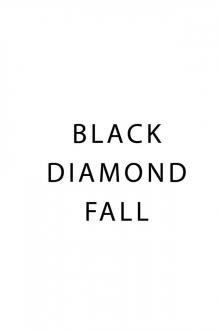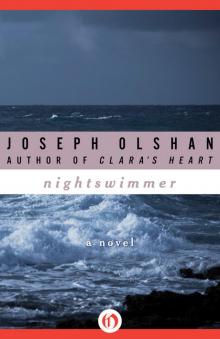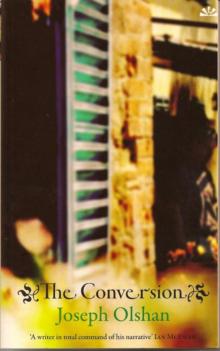- Home
- Joseph Olshan
Nightswimmer
Nightswimmer Read online
Nightswimmer
A Novel
Joseph Olshan
For Margaret Edwards
and
for Charlet Davenport
And there’s another reason for my sorrow:
it’s no great sea that sunders him from me,
no endless road, no mountain peak, no town’s
high walls with gates shut tight: no, we are kept
apart by nothing but the thinnest stretch of water.
—OVID, METAMORPHOSES, BOOK III
CONTENTS
Prologue
PART ONE: WEAVER
Chapter One
Chapter Two
Chapter Three
Chapter Four
Chapter Five
Chapter Six
Chapter Seven
Chapter Eight
Chapter Nine
Chapter Ten
Chapter Eleven
PART TWO: MARINE
Chapter Twelve
Chapter Thirteen
Chapter Fourteen
Chapter Fifteen
Chapter Sixteen
Chapter Seventeen
Chapter Eighteen
Chapter Nineteen
Chapter Twenty
PART THREE: SWIMMER
Chapter Twenty-one
Chapter Twenty-two
Chapter Twenty-three
Chapter Twenty-four
Chapter Twenty-five
Chapter Twenty-six
Epilogue
A Biography of Joseph Olshan
PROLOGUE
EVEN NOW, TEN YEARS later, I’m waiting for him to come back. Still out there at the buoys, treading water, I’m waiting for the sun to rise over the Los Padres, for the far horizon of the Channel Islands to reappear. I know that he’ll surprise me, the way he used to, and I’ll give him a hard time for scaring me, for staying out in the Pacific so many years.
As I picture it, he suddenly surfaces, swims over and slips his arms around my shoulders. We take the last two hundred yards leisurely into the beach, throw on our jams, stroll along the boulevard back to my apartment, make love like the familiar strangers we have become, then sleep through the day.
The first to awaken, I lie there listening to the cackling Santa Ana winds, to the frenzied blades of fan palms outside my window. Finally I look over at him. He sleeps on his stomach, and his back, stretching wide like a cobra’s hood, rises and falls in the proof that he’s actually alive.
The first time I ever saw him was at the campus pool the day I quit working out with the swim team. The water polo players were milling on the Astroturf deck, strands of chlorined platinum glinting in their hair as they clowned and shoved one another into the water. I’d gone into a dark office, told an unconcerned coach that swimming 15,000 meters a day was interfering with my studies, and was just leaving when I locked eyes with a man. Something inside me was stilled as he pivoted away from me, raced along the deck and leaped up in the air. One of his friends lobbed a yellow polo ball in an arc over the water. He caught it with one arm back, and then, cradling it to his chest, plunged into the aquamarine.
Now ten years have passed and I have been loved by others. And yet, after all this time, there’s a part of me that believes he’s out there swimming the thirty miles across the channel to Santa Rosa. There’s a part of me that believes one day he’ll break the cryptic embrace of that ocean. And so, no matter where I am, I remain exactly where I lost him.
PART ONE
Weaver
ONE
SOMETIMES I GET CONFUSED and think you’re him. You him. Just as I get confused when I swim beyond the breakwater and forget what ocean I’m in: the Atlantic, the Pacific. Or when I wake up in the arms of a stranger and it’s too dark in the room to see a face that I suddenly cannot remember.
You asked me to tell you what happened, and so I will. It starts, of course, the day you began. Sunday a year ago, August, I was a houseguest out on eastern Long Island, on what the newscasters were calling the perfect weekend of the summer. I’d volunteered to pick up someone arriving by train and was waiting at the station among a crowd of impatient Manhattanites, who were anxious to collect their visitors and head to the beach. Leaning against my car, reading a New Yorker article about surfing, every so often I looked down the fretwork of tracks shimmering in the heat as they slowly bent toward Southampton.
I was thinking about the “Morning Party” going on right then in Fire Island. Thinking about the parade of men who’d worked out for this day, and even shaved their chests for the occasion. Thinking how the Morning Party must also be the Mourning Party inasmuch as while there were thousands of men dancing, there were also, hovering above them, the thousands of souls of the newly dead who had danced on that beach just a year or two before. Thinking, as I had been vaguely all summer, about falling in love again.
Those first few days and weeks with someone new makes the whole world feel like a Tanqueray ad: everyone is dressed in loose linen and holding their martinis at the edge of the cobalt-colored bay. If I met someone, I knew I’d spend the first possible weekend in Vermont in the converted red 1800s schoolhouse I was renting at the time, making love in the loft beneath a skylight, going for late-night walks in a cemetery across the road among the old Revolutionary War tombstones.
But the train did not arrive. A woman wearing a black sleeveless blouse and cut-off jeans began complaining to me, and she decided that I should call the Long Island Rail Road from the pay phone. I was put on hold and just as my change was about to run out, a clerk came on and said that the train was being held one stop before Sayville. I asked what was causing the delay and he told me quite matter-of-factly, “Some guy threw himself in front of the train.”
These words were spoken just as my money ran out. Because I really don’t know what happened to him, I reel from stories of untimely deaths, of disappearances. I make grim assumptions. I felt shaken as I came out of the booth. “So what happened?” asked the woman in black.
“Somebody apparently threw himself in front of the train.”
“Oh, for crying out loud!” exclaimed a middle-aged lady dressed in a caftan who was standing nearby.
“Boy, that really fucks everything up!” said a guy holding a motorcycle helmet under his arm.
As news of the delay spread, many people began leaving the train station. Deciding to wait for a while longer, I took off my shirt and put on some sunscreen. When I tried to finish reading the surfing article, I found myself unable to concentrate. I imagined a whole life for the dead man, his awakening on this the last morning of his life with the realization that without warning, his lover had arisen earlier than was ever customary on a Sunday and had gone to the Morning Party. And such a furtive departure could only mean that among the five thousand men converging on the beach, the errant lover was planning to meet and steal away with someone else, perhaps to a guest room of one of the gray pine houses rented out in half shares.
Such fantasies led me to remember the last night before he disappeared. We lay in bed after making love. Outside, the Santa Anas whined like a turbine, but I was feeling calm because he was with me. No arguments, no emotional tug-of-war, just our limbs casually entwined. He lay there, his arms cocked behind his head, eyes flitting around the room. He was restless.
“Hey, Will,” he said in his sweet, hoarse voice as he leveraged himself up onto his elbows and scissored his legs away from mine, “how about a half mile out.” He leaned his head toward the Pacific.
“Not tonight,” I told him. “I’m exhausted. And it’s too windy besides.”
He shook his head and grinned. “Come on, let’s just get in for a while.” He took a playful swipe at me and sprang off the bed, naked. Cupping his hands around his eyes, he peere
d out the window. His back was casually bronzed from being outdoors, thickly corded with muscle, elongated from swimming so many millions of meters, his buttocks a white band of flesh preserved from tanning by a Speedo. He was the more beautiful.
“Why does it always have to be at night?” I asked him.
“It’s more of a kick at night.” He flattened his forehead against the window, staring out into the darkening red-roofed city of Santa Barbara. “You said so yourself. You even bragged once that we were probably the only ones in California who swim at night beyond the breakwater.”
“But I also said we were crazy. A stunt like that quickly loses its appeal.”
“Not for me.”
“Then go by yourself.”
He turned around and looked doubtful. “Come on, Will,” he said softly. “You know it’s cardinal never to swim alone.”
“Swimming after dark isn’t exactly forgiven.”
“Just an easy half mile, out and back. It’ll be over in twenty minutes. Over before you know it.”
I told him he would make a good proselytizer, and that made him keep on.
“Yeah! Swimming at night. Think of it! Being out there in the swell, in the black belly. Not seeing ahead of you or behind you and just counting strokes until you know you’ve done your half.”
“Can’t we just go to the pool?”
He remained resolute, crossing his arms. “You know it’s not the same thing, Will.” His eyes told me we’d make love again if I gave in to what he wanted.
That mid-November night, the last night we ever swam, he held my hand as we descended the tile steps from my apartment onto Mason Street. Below me lived a rowdy Mexican family who would good-naturedly broom-handle their ceiling whenever we got too loud, and they snickered as they saw us leaving. We wandered shirtless along the waterfront of West Beach, among the palms and jacarandas, where construction had stopped for the day on the old harbor pier. Santa Barbara was pouring money into the refurbishment of its wharf, and it was only a matter of time before there’d be restaurants out there teeming with tourists and local pleasure seekers, in their faded Hawaiian shirts and sunburnt hair, getting blitzed on tequila and rum. But that night the wharf still held its condemned abandoned look, and the only people venturing out there were true derelicts, the drug addicts and the fair-weather bums who commuted from one mild southern California town to another.
The moon rising over the Los Padres frosted the water, and we could see the dark landmass of the Channel Islands twenty miles across.
He turned to me with a jittery smile. “Ready?”
A moment later I was watching him dive through the middle of a wave. Then I was right behind him, yelling from the shock of the temperature. Whenever we went in at night, I felt as if I were testing something, or teasing the temperamental universe. I started counting how many strokes it would take to reach the white plastic buoy line. It was two hundred yards offshore, a line used by the long-distance fanatics who always swam the stretch between the beaches of Ledbetter and Coral Casino. Those buoys were nearly halfway to our imaginary destination.
We ran into several kelp beds on the way. The instant I felt those slimy necklaces of seaweed I thought for sure I’d run into a shark. Why do you keep doing this, Will, I kept asking myself as I swam farther from shore. Months before, when we’d first met, I had felt the need to swim with him at night because I thought it would guarantee his love. But now I believed he would refrain from being more daring if he were forced to reckon with the company of another swimmer.
Just as we were closing on the half mile, I heard a kind of churning explosion. I stopped swimming and eggbeatered my legs and peered around until I saw, coming straight toward us, a whale-shape of boat outlined with what looked like Christmas lights. I gaped at it until I realized it was a barge dredging sand from one part of the harbor and dumping it in another. The boat would suck up whatever it came across: kelp, fish—and us if we happened to be within range. He somehow didn’t hear it because he kept swimming, and I had to race to catch him, until I could grab his arm and scream, “Look at that fucking boat! Let’s get out of here!” He mumbled something and I thought he’d said, “Okay.”
I began sprinting back to shore. I swam my guts out until I finally hit the white buoy line. Stopping for a moment to recover my breath, I peered around, looking for him. Listening for him.
Admittedly, my circle of perception was limited by darkness and by the sound of surf pounding the shore, but in an instant I realized he wasn’t with me, that I was completely alone out there.
Now, ten years away, and three thousand miles, I suddenly heard a railroad bell tolling the train’s arrival. When the cars finally pulled into the station, I watched all the disgruntled passengers getting off until I finally spotted the guy who was getting a ride from me. He was one of these eternally pale East Village types who dress from head to toe in black. We barely knew each other.
“Hey, Will, sorry about the delay.” He tossed an overnight bag in the backseat of my car and climbed in front. He had a long pointy face, small glittering pebble-gray eyes. “Hope you didn’t have to wait too long. The Summer Express turned into the Suicide Special.”
“That’s what I heard,” I said as we drove off.
“One stop before Sayville. You should’ve seen the guys trying to make the Morning Party. Fit to be tied. ‘How long does it take to remove a mangled body from some railroad tracks?’ ” he mimicked.
“Fucking New Yorkers,” I said. “So, did you see anything?”
“You mean like a severed head?”
He hadn’t.
The conversation lapsed until we were driving through the town of East Hampton with its rows of expensive clothing stores and food shops. “By the way,” my companion said, “I ran into your ex on the train. On his way to the Morning Party.”
“Was he with a dog?” I asked.
“Are you for real?”
Then I remembered it was Metro North that allowed dogs, not the Long Island Rail Road. “Forget it.”
“That’s right. I remember hearing from somebody that you guys have joint custody over your dog.”
“His name is Casey.”
“Whatever. But it’s so nineties, joint custody of a dog.”
“What else should we do if we both love him?”
I couldn’t wait to drop this drippy guy off at the house where we were both staying and head to the beach. It was a red-flag day, the combers crashing far out and unevenly, and the Atlantic’s mood was in sync with my own. The beach swarmed with people and I trekked down the strand until the oiled bodies began thinning out. I spread out my towel, dropped the hardcover that I was reading and wandered down toward the lip of the water.
There’d been plenty of men in my life since him, and Greg Wallace was the latest in the succession. Recent memories tended to blend together, whereas he of ten years past had managed to remain relentlessly distinct: the dark unruly hair matted with salt, the colorless down on the back of his neck, his scent of chlorine and sweat and eucalyptus, the ardent black eyes that perhaps he had inherited from his one Latino grandparent. In the last few weeks he’d been on my mind a lot more than usual. Ten years is a wicked anniversary.
On that crowded beach, no one dared to enter the treacherous surf past their knees. Without a second thought, I waded out to the critical point between shore and breakwater, dove through a wave and surfaced beyond, swimming. Another roller snapped on me, twirled me up like a ribbon and charged me down to the bottom. I clawed my way up through sandy darkness to the surface, just as another one was beginning to cave in. I dove right through its belly and cut out another twenty-five yards to where there was less chance of being churned up. The water was all murk and I could feel the tongue of the tide trying to swallow me as I settled into long strokes, conscious of rotating my shoulders, inviting danger.
I finally stopped swimming to tread water. I’d ended up pretty far out, maybe two hundred yards offshore, much farth
er than ordinary swimmers go even when the water is serene. A cluster of concerned people were already gathering at the tide line, waving me in. But there was part of me that wanted to keep swimming, for miles and miles until I was forced finally to give up. Realizing this, I started feeling panicked and swam back until I caught a wave at its curl and body-surfed in.
As I walked back to my towel, I reminded myself that things were okay, that it really wasn’t so bad to be single. For once, I didn’t have to worry about a relationship, being a part of what seemed like endless compromising. I was a free agent, right? But of course I’d think that on the day of meeting you—you who, at that very moment, were riding the ferry back from Fire Island. I remember looking at my watch, which read five minutes before five. You would tell me much later that something had compelled you to leave the Morning Party earlier than you’d planned, that you’d barely caught the five o’clock boat back to Sayville, where a medical examiner was pondering the mutilated body of a thirty-two-year-old man. Little did either of us know that you were on your way into my life. Little did we know that his death had something to do with you.
TWO
BUT OF COURSE YOU wouldn’t know the particulars of this death until the next morning. You would first hear general news of a suicide—I would be the one to tell you, that same night—but you still wouldn’t know who. As for the media coverage of it, I think the incident never went beyond what was probably informal newsroom gossip, an inconvenience to thousands of New Yorkers. Never was it mentioned in the Times or the Journal, papers I sometimes write for. I probably should’ve checked the Long Island coverage in Newsday.
When I arrived back in Manhattan that Sunday evening, I parked in a lot on Lafayette, across from World Gym. I grabbed my overnight bag and was heading across the street when I spotted Peter Rocca, a red-haired psychiatrist whom I’d been dating on and off over the summer. Wearing the sheerest of orange tank tops, he was standing in front of the gym’s huge plate glass windows, as if waiting for someone. I thought, he’s back from the Morning Party conspicuously early. Stopping to watch who might be joining him, thinking how throughout the past few months with Peter I’d been waiting for the single act of tempestuous lovemaking, the act of casual cruelty that would seed a romantic obsession, I stood there on the curb.

 Black Diamond Fall
Black Diamond Fall Cloudland
Cloudland Nightswimmer
Nightswimmer The Conversion
The Conversion